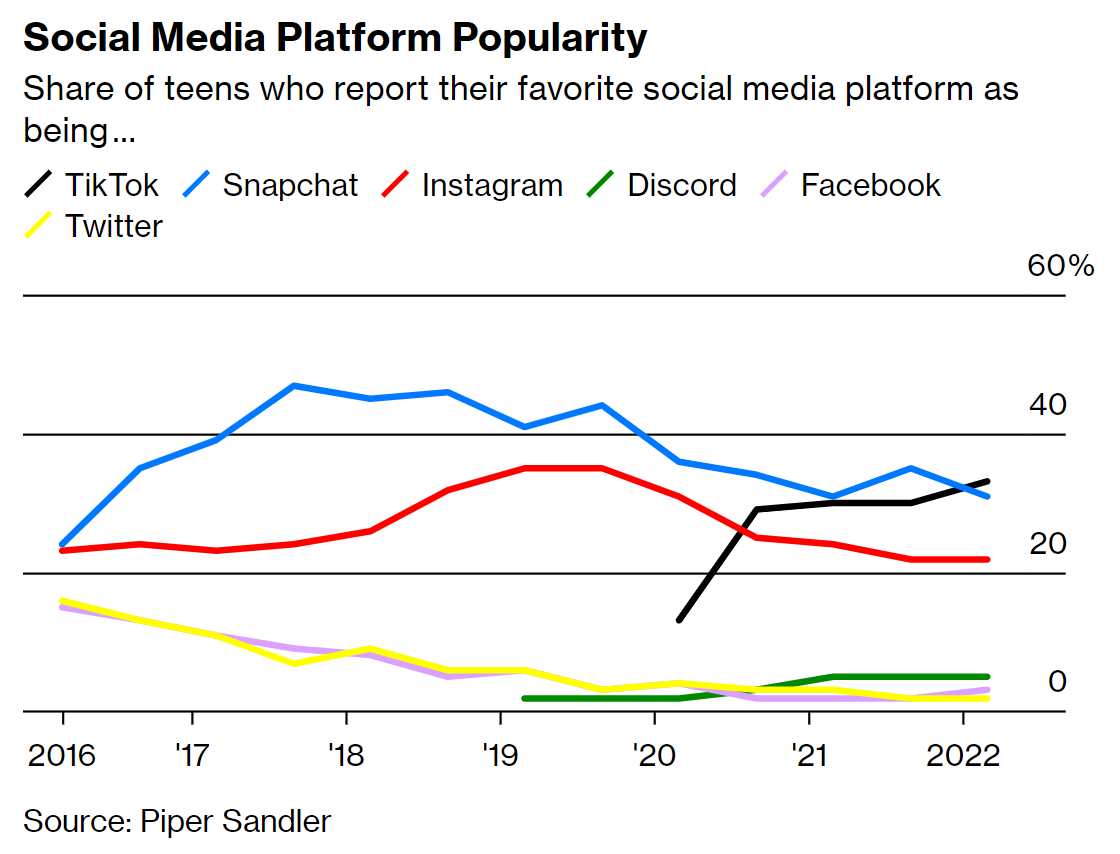Over 14 years, since the invention of its news feed, Facebook has become extremely good at one thing: showing people what they definitely want to see, based on their past behavior and online activity. Facebook ranks your friends based on how much you engage with them and orders their posts accordingly. If you search for cake decorating videos on Instagram, expect to see more in your suggested follows the next time you log on. If you shop online for ankle boots, they’ll turn up in your feed. The upside of that kind of algorithm is a $116 billion advertising business. The downside is, people get bored.
TikTok delivers a level of algorithmic magic that’s a step beyond, introducing people to stuff they had no idea they would be entertained by—which has the effect of boosting no-name stars into the spotlight as long as they’re creating great content. Achieving that same effect has become a top priority, Zuckerberg said during a recent earnings call: I think about the AI that we’re building not just as a recommendation system for short-form video, but as a discovery engine that can show you all of the most interesting content that people have shared across our systems.
A company as big as Meta, with 3.6 billion users across Instagram, Facebook, and WhatsApp, has lots of ways to push features on people. Reels now appear in every Instagram user’s feed. Once someone clicks on a Reel, they’re suddenly in a full-screen mode where swiping up or down only gets you to more Reels. This design tweak can be jarring, like turning a corner in a quiet art gallery and finding yourself in the middle of a dance party.
Sarah Frier & Brad StoneAs others have pointed out, one of Facebook’s biggest issues going forward is simply… that neither the company nor its founder Mark Zuckerberg have actually delivered any original concept since its inception. After its initial success, it has relied on either acquiring the current popular app (Instagram and WhatsApp) or copying their features when it failed to purchase them (Stories from Snapchat, now Reels from TikTok – ironically, Instagram co-founder Kevin Systrom suggested to his superiors at Facebook that they should consider buying it back when it was still called Musical.ly).

While these tactics have worked for Facebook before, there is only so much unrelated content you can stuff on Instagram before it becomes a jumbled mess of ads, suggested posts, and sponsored content. Coupled with the recent departure of Sheryl Sandberg, partially driven by her declining role in the strategic shift towards the Metaverse, this feels like the most relevant turning point for the company in a while. But a virtual world at Facebook’s current scale is years away at best, and so until then the company is left chasing the latest fad in mobile entertainment… Which unfortunately doesn’t mix very well with its earlier promises to promote closer social connections or to combat misinformation. TikTok’s algorithms show people clips from unrelated accounts based on individual tastes and the clips’ popularity, something that Facebook has never been known for.
I think there’s an argument for returning to the roots of the respective apps in the Facebook conglomerate, to center them on clear intents that have been increasingly mushed together everywhere. Let Facebook (the app) be the place for social interactions with friends, acquaintances, and other various groups; let Instagram be an aspirational photo sharing and consumption app, with some e-commerce features; let WhatsApp be primarily about messaging; stop chasing video and news, which are better served elsewhere. Changing focus every couple of months to promote a new copycat feature erodes the confidence of creators and confuses users with too much variation.
There’s still plenty of money to be made on Instagram, whether or not Reels succeeds. While I think we are seeing Instagram fall from its spot as the most beloved social platform by most Americans, that doesn’t mean it will fail or close
, says Karyn Spencer, who ran creator relationships at Vine. It just means that you can only be prom queen for so many years before someone younger and fresher comes to take your crown.
Over the long term, it feels like every generation develops new tastes in social interactions, driven either by improvements in technology or by the rejection of the favorite apps of their parents. At its scale, Facebook is in no danger to disappear anytime soon, but to survive and thrive they should probably identify the new wave sooner rather than later (and I doubt that wave will be virtual reality).
Post a Comment